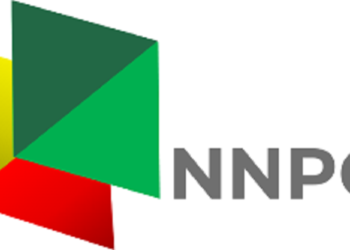For big and critical organisations such the Federal Inland Revenue Service (FIRS) which has a workforce of over 11,000 staff, the issue of human capacity development is a big deal. With the preponderance of technology in all facets of human endeavour, the world keeps evolving by the day; and the workforce of such organisations like the FIRS needs to evolve at a higher speed per day in order to stay ahead of evolving trends.
This is the rationale for the frequent subject-matter training which the FIRS schedules for all staff. To sharpen the skills of staff, the Management expects that all staff of the Service, including contract drivers, should be trained on their job functions at least once in two years- that is, as a worst-case scenario. In practice, staff could get training on their job functions at an average rate of three times in one year. To achieve the above schedule, it becomes inevitable that the Service has to spend a lot of money on training. Considering the high cost of training using consultants in Nigeria at the moment, the cost of achieving high quality training for all of FIRS workforce over a two-year period could run into billions of Naira; and since such trainings are a necessity, the Service would have no option other than to pay for its staff development.
Group Lead of FIRS General Services Group (GSG), Ahmed M. Muhammed, supervises Career and Skills Development Department.
Recently, in line with its policy of cost saving and obtaining value for money, the Service introduced a new training strategy—Train the Trainer Strategy. The Management called for applications from suitably qualified staff to serve as Subject Matter Experts and from the numerous applications, selected outstanding staff who have expert knowledge of the subject matter, deploying them to handle various programs based on their expertise. As a result, FIRS does not need to utilise training consultants for all capacity building programs; the Service needs only to outsource experts to handle trainings where internal capacity is not available.
The Service has deployed the above strategy for about six months now and it is working seamlessly so far. During the strategy assessment engagement recently, some of the trainees as well as the facilitators praised FIRS Management for thinking out of the box. A class of staff who were undergoing a training on Fundamentals of Taxation at the FIRS training school in Durumi, Area 1, Abuja, gave a standing ovation to one of their colleagues after handling the training.
Reacting to the development, one of the trainees said that he was happy that the FIRS Management is now using FIRS staff to train FIRS staff. He said: “This is a great initiative by the Management. You can see that everyone is happy. You are motivated because the person standing before you is also your colleague. You are freer to ask them questions, the class becomes more relaxed and interactive. You are also motivated to learn the subject matter so that one day, you can stand before other colleagues and lecture them. This is commendable and we want the Management to keep it up. Apart from making the class more relaxed, it also saves costs. Using this strategy, the Management does not need to always use training consultants. We can save the money and use it for other pressing needs of the Service. It also helps both the trainers and the trainees; the trainers would internalise the subject matter more if they keep teaching other staff; because you would not want to come here and mess up yourself, you would try to read the subject matter very well. By doing so, the trainers are equipping themselves more. For the trainees, you are challenged and motivated to do better”.
Responding to accolades, one of the trainers said “We will report back to the Management that you said that this strategy is good. We also believe that it is good. Thank you very much”, the trainer said.
Director of FIRS Career and Skills Development Department, Mrs. Angel Fadahunsi
The Director of Career and Skills Development Department of the FIRS, Mrs. Angel Fadahunsi, said that the Service is convinced that using competent staff to train other staff would be more productive.
“Yes, that is the way the Service is going. Why should we be paying consultants to come and train our staff when we have the capacity to train ourselves? There is no reason for that. This is one of my Department’s 2022 Key Performance Indicators (KPI) and we are working hard to achieve it. By next year, more training programs which were outsourced will be handled by staff. We are not outsourcing them any longer. You can see that both the trainers and the trainees are happy; and at the same time, the Management is saving money. We are using our competent staff to train other staff. This is the way the Service is going and it’s just one of many innovations that the ECFIRS has encouraged us to adopt; watch out for more” she said.
Kelechi Okoronkwo is a Technical Staff to FIRS Executive Chairman.








